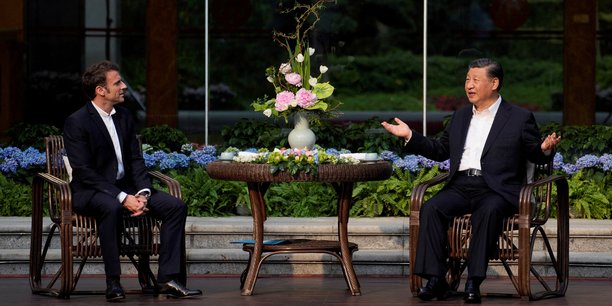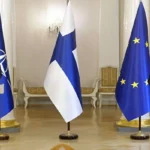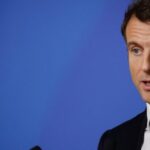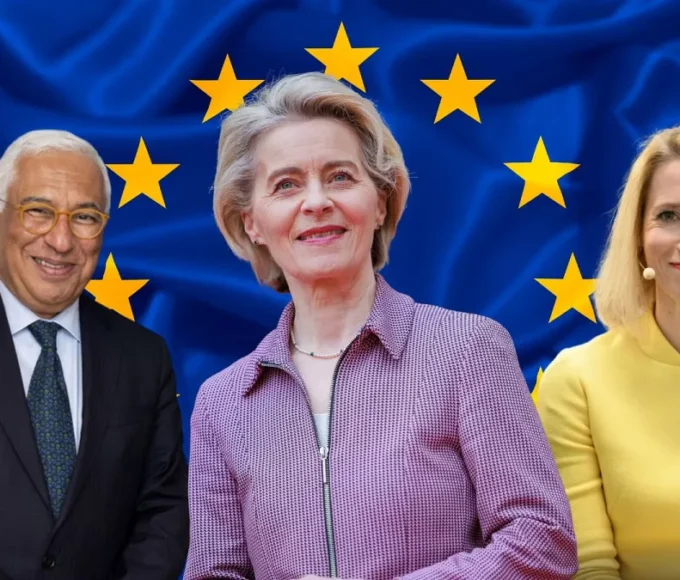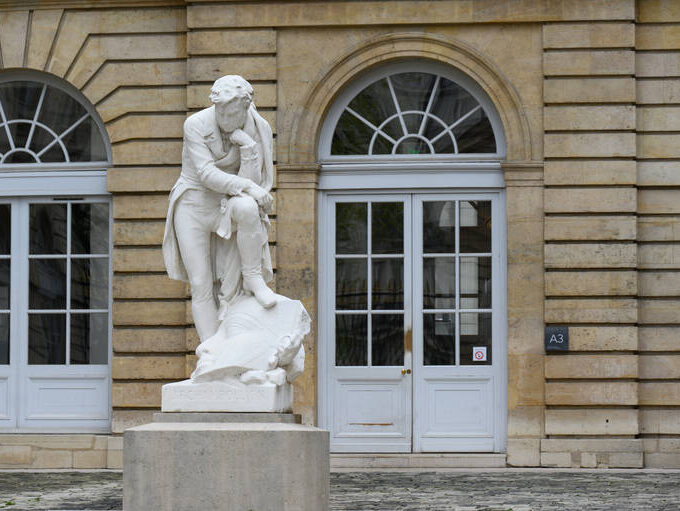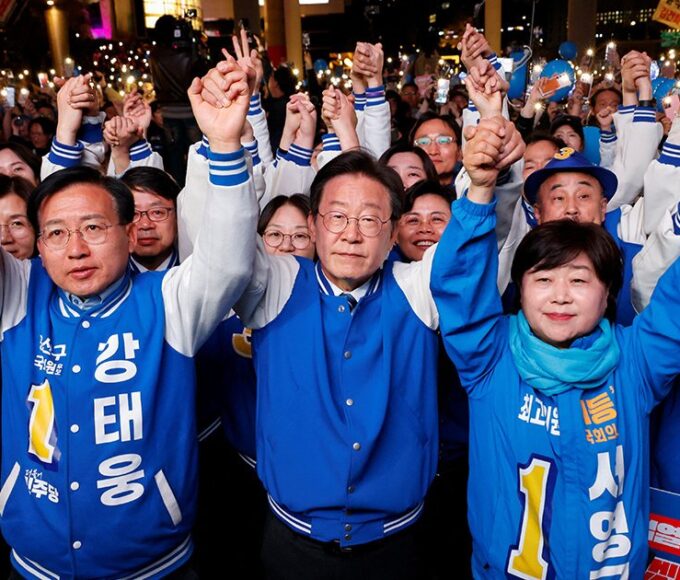Trying to drive a wedge between China and Russia over Ukraine: this is the French president’s avowed objective for his three-day state visit to the People’s Republic of China.
Indeed, Emmanuel Macron, who came with the President of the European Commission Ursula von der Leyen, is making this trip at a critical time from the point of view of China’s strategic positioning. On the one hand, President Xi Jinping has multiplied the signs of strategic rapprochement with Vladimir Putin: his state visit to Moscow on March 21-22 shortly after the announcement of the issuance of an arrest warrant against its host by the International Criminal Court, made an impression; his “peace plan” for Ukraine appeared as a backing for the Russian security agenda; and the development of trade with a Russia under multifaceted international sanctions constitutes an objective alliance with the Russian economy.
However, Beijing is reluctant to show complete solidarity with the Kremlin: China has not recognized Russian annexations in Ukraine; she refuses for the moment to deliver armaments to Russia; and she always mentions the possibility of holding discussions with the authorities in kyiv.
For European diplomacy in general and French diplomacy in particular, it is essential to play on the cracks that can be guessed between Moscow and Beijing. At a time when the French fear greater Chinese support for the Russian war effort and when they hope to involve the Chinese authorities in mediation, it is essential to measure the real solidarity and real dissension within the ” bloc » Russian-Chinese.
Against The Transatlantic Relationship, a Eurasian Axis
The PRC’s support for Russia is far from temporary. The two countries have continued to develop their exchanges and cooperation over the past two decades. After having, in 1994, resolved their border disputes stemming from the Soviet period, they concluded, in 2001, a bilateral strategic partnership which materialized on several levels.
Trade has grown steadily despite the economic crises (2008, 2014, 2021). They even reached the level of 190 billion dollars in 2022, a record, and an increase of 30% compared to 2021.
The PRC has since 2010 become Russia’s second largest trading partner, behind the European Union as a whole, but ahead of all EU countries taken individually. Supply of energy, minerals and defense equipment on the Russian side, export of machine tools, pharmaceutical products and electronic components on the Chinese side: the complementarities were rapidly reinforced by the establishment of financial exchanges in rubles and yuan and of a development bank within the BRICS.
The Siberian Force pipeline, launched in 2014 and inaugurated in 2019, connects Siberia to northeast China. It will soon be reinforced by Siberian Force 2. These infrastructures give Russia an alternative outlet to the EU, which is engaged in a strategy of weaning off Russian hydrocarbons. They also offer the PRC a low-cost energy supplier at a time when the United States has regained a leading position in world energy markets.
This partnership is largely cemented by the contestation of the West on the international scene. Long before Xi Jiping came to power in 2013 and before Russia’s break with the West in 2014, the two former empires were already questioning the international action of the United States in particular and Westerners in general: at the United Nations Security Council (UNSC) as everywhere in the world, Chinese and Russian diplomats have mutually supported each other in criticizing NATO’s interventions abroad (Serbia, Afghanistan), in challenging liberal democratic regimes and to denounce the “double standards” of a West that violates the rules it intends to impose on other international actors.
At the UNSC, the right of veto has been used extensively by Russia (29 times) and by the PRC (15 times) since 1991 to counter Western condemnations of Ukraine, Taiwan, Xinjiang, etc. There is therefore an “objective defensive alliance” between nuclear powers that are permanent members of the UNSC.
This anti-Western team is coupled with a certain cooperation on a Eurasian scale: jointly creating the Shanghai Cooperation Organization (SCO) in 2001, Russia and China have sought to establish a real joint hegemony in Eurasia to fight against terrorism, separatism and organized crime in the region. But also to counter the influence of the United States in the region following the wars in Iraq and Afghanistan. The SCO brings together during regular military exercises in all dimensions (air, land, sea, cyber) the two military powers and their allies. Chinese support for Russia was signaled last September by the PRC’s participation in the Vostok 2022 exercise in the Far East.
XI Jinping’s visit to Moscow confirms that the PRC is a “foul weather friend” of Russia, in other words an ally even in times of crisis: in Eurasia and at the UN, economically and in the military fields, the Sino-Russian strategic partnership is real and claims to carry an alternative (and hostile) vision of the world to that of the West. More concretely, the PRC quietly supports the Russian invasion by refusing to adopt sanctions, fueling the Russian military-industrial complex and recently proposing a Russian-Ukrainian peace plan that emphasizes security guarantees. for Russia.
From Distrust to Rivalries
Should Europeans and Americans therefore prepare to counter a bloc of authoritarian regimes of which China and Russia would be the leaders, with Iran, Syria, North Korea, Syria or even the regimes of Asia? central? The geopolitical risk of a “de-Westernization” of the world is real. But it must be nuanced.
Between Moscow and Beijing, the sources of mistrust are real. Russia has long feared China’s economic, demographic and military weight, especially in its own depopulated and underdeveloped Far East. In terms of population and GDP, the ratio is structurally 1 to 10 in favor of the PRC. The holding of an APEC (Asia-Pacific Economic Cooperation) summit in Vladivostok in 2012 responds to Moscow’s desire not to be demoted to the rank of China’s stooge or brilliant second. And the remilitarization of the Arctic by Russia aims to reaffirm its control of a maritime route where Beijing affirms its ambitions, icebreaker in support.
As for China, it observes an obvious and constant reservation vis-à-vis the expansionist adventures of Russia: it did not recognize the independence of South Ossetia and Abkhazia after the Russo-Georgian war. of 2008. Just as it did not recognize the annexation of the four Ukrainian provinces taken by Russia in September 2022. And its peace plan for Ukraine has as its first point respect for the territorial integrity of the country – without specifying whether this means that China wants Russia to abandon Donbass and Crimea. In short, on the existential questions of Russian geopolitics, the PRC leaves room for ambiguity, between support and mediation. The block shows obvious signs of crumbling.
Rivalries between China and Russia are even open in Central Asia, South Asia and Africa. Many cracks appear, as in the Soviet era, when it comes to regional hegemony. The five Central Asian states that were formerly Soviet Socialist Republics are the focus of an almost centuries-old rivalry between the two former empires. On the one hand, Russia has nurtured its influence on the spot through regional organizations that exclude China: the Collective Security Treaty Organization (CSTO – 2002) serves as a framework for security and military cooperation between the ” Russian “big brother” and some of its former dependencies (excluding Uzbekistan); the Commonwealth of Independent States (CIS) and the Eurasian Economic Union (EAEU) provide geographically and institutionally variable frameworks to counter Chinese dynamism in the area.
The “New Silk Roads” (OBOR then BRI) launched in 2013 were precisely intended to shake up and circumvent Russian hegemony: massive investments and loans, the construction of rail and logistics infrastructure as well as the installation of a Chinese military base in Tajikistan aroused very strong fears in Moscow. The Chinese strategic partner is indeed deliberately seeking to marginalize Russia in the region.
Russian dynamism in Africa (Central Africa, Mali, Burkina Faso, etc.) and in South Asia (India, Vietnam) should not be reduced to contestation of the West (and France) on extra-European fronts . It must also be understood as a desire to influence the Sino-Russian bilateral balance of power.
Thus, it was primarily to embarrass China that Russia pushed for India’s membership of the Shanghai Cooperation Organization (SCO), which happened in 2016. To avoid be weakened, the PRC responded by requesting the membership of its Pakistani ally at the same time in the SCO. Integrating India into the SCO means inviting Beijing’s great systemic rival into a structure where China risked dominating Russia. And, on the bilateral level, Moscow has long developed its exchanges with Delhi in defence, nuclear and energy, precisely so as not to depend solely on Beijing in its confrontation with the West. In a word, for Vladimir Putin, the support of Xi Jinping is welcome, but could be embarrassing if it were exclusive.
The European Dilemma
Xi Jinping’s visit to Moscow reminds the West of a structuring geopolitical risk: for two decades, the two major Eurasian nuclear and technological powers have converged on all fronts to openly challenge his vision of world trade, international relations as well as structures dedicated to global and regional security.
The challenge is daunting, especially for Europeans who have always been neighbors with Russia and have long traded with China. But is the real challenge to treat them as an ideologically homogeneous block in a logic of confrontation? Or is it not rather, as Emmanuel Macron seeks to do during his trip to Beijing, to play on internal rivalries to dissociate these Eurasian powers in open competition in at least three areas?
This article is originally published on latribune.fr


